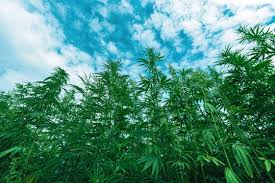
Discover Weed in Banja Luka: Unpacking Cannabis Culture in Bosnia’s Largest City
This article delves into the cannabis scene in Banja Luka, examining how the plant is perceived, the challenges it faces, and what the future might hold for cannabis in the region on Discover weed in Banja Luka.
Banja Luka: A City of Youth and Change
Banja Luka is renowned for its cafes, music festivals, and art galleries, as well as its younger population, which is drawn to the city for its universities, creative industries, and nightlife on Discover weed in Banja Luka.
However, Banja Luka, like much of Bosnia and Herzegovina, faces significant economic and social challenges. Youth unemployment, a sluggish economy, and political divisions still cast a shadow over the city. Among these alternatives, cannabis has begun to gain traction—both as a recreational substance and as a tool for wellness on Discover weed in Banja Luka.
Though cannabis remains illegal in Bosnia and Herzegovina, its underground presence is undeniable. In recent years, cannabis consumption has become more visible in urban areas like Banja Luka, particularly within younger social circles.
Cannabis in Banja Luka: Growing Interest in an Underground Market
In Banja Luka, as in the rest of Bosnia and Herzegovina, cannabis remains illegal. The country’s laws are strict, and cannabis is classified as a controlled substance under the criminal code. Possession, cultivation, and distribution of cannabis are criminal offenses, and those found guilty can face significant penalties, including imprisonment. Despite the legal risks, cannabis use has been steadily increasing, particularly among younger generations.
Much like in other parts of the world where cannabis is banned, Banja Luka’s cannabis market is largely underground. Cannabis is obtained through illegal channels, often through local networks or through connections to other parts of the region.
Social circles of students, artists, and young professionals in Banja Luka are where cannabis use is most prevalent. Cannabis consumption, while still somewhat stigmatized, has become part of the city’s nightlife culture.
In the underground market, cannabis products can vary widely in quality. As with any illicit market, there are few safeguards to ensure product purity.
The Medical Cannabis Debate in Banja Luka
Though recreational cannabis use remains the primary focus in Banja Luka, there is a growing interest in the potential medicinal benefits of cannabis.
In Bosnia and Herzegovina, however, medical cannabis remains illegal. Despite this, a growing number of individuals in Banja Luka are turning to cannabis to alleviate symptoms of medical conditions.
However, the stigma surrounding cannabis remains a significant barrier to widespread acceptance. Many Bosnians still associate cannabis with illegal drug use, making it difficult for patients to openly discuss their use of cannabis as a therapeutic option.
With its youthful population and a growing interest in alternative health treatments, the city would likely benefit from the introduction of a regulated market for medical cannabis. However, as of now, the legal framework remains a significant obstacle.
The Legal and Social Challenges
One of the biggest barriers to cannabis use in Banja Luka is the legal environment. For those caught with even small amounts of cannabis, the consequences can include fines, imprisonment, or both.
This creates an atmosphere of caution around cannabis use. While consumption is widespread, it takes place in secrecy, often in private homes, cars, or secluded areas.
Additionally, the stigma around cannabis is a major issue. Many people continue to view cannabis as a dangerous drug, associating it with criminal activity or anti-social behavior.
However, there is a growing body of support within Bosnia and Herzegovina, including in Banja Luka, for the legalization or decriminalization of cannabis.
The Future of Cannabis in Banja Luka
As cannabis use continues to grow in Banja Luka, the future of cannabis in the city largely depends on changes in the legal and social landscape. If the global trend toward cannabis legalization continues, Bosnia and Herzegovina could eventually follow suit.
In the meantime, however, cannabis remains an illegal and stigmatized substance in Banja Luka. The city’s future relationship with cannabis will depend on ongoing discussions, public opinion, and the potential for policy change.
As attitudes toward cannabis evolve globally and domestically, Banja Luka may one day become part of a new wave of cannabis reform, opening the door to a regulated and safe cannabis market that could benefit the city’s economy and public health.
Conclusion
Cannabis in Banja Luka, as in many parts of the world, remains a complex and often clandestine subject. While the plant is still illegal in Bosnia and Herzegovina, interest in cannabis—both as a recreational substance and as a potential medicine—is steadily rising in the city.
For now, cannabis remains a secretive, yet vibrant part of Banja Luka’s social scene, as people turn to the plant for its perceived therapeutic benefits or simply as a way to relax.
Message Greenleafemporium1@gmail.com “There weed is so well-cured that it practically glows, and when I lit up, the smoke was smooth and flavorful without any harshness, which is exactly what I look for.” Highly recommended local plug his telegram / https://t.me/Greenleafemporium1
“Wow’ they have earned my trust by being consistently reliable, providing top-tier products every time and delivering them on time with no fuss.
There service was amazing; they were quick to respond to my questions and made sure everything went smoothly, making the entire process a pleasure from start to finish thank you.
You’ve made me feel like a valued customer every time I’ve ordered, with your quick responses and willingness to help out, I won’t be going anywhere else.
“I don’t think I’ve ever gotten a more potent batch, each hit is smooth and flavorful, and the effects are just what I need to unwind and relax ‘ Thank you guyz.
I just got my order, and I have to say, the quality of the buds is absolutely top-notch, with a pungent aroma that immediately let me know I was in for a great experience.